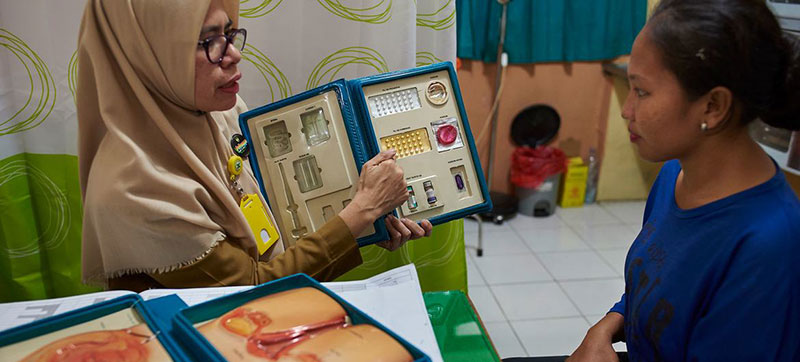 Pregnancy
Pregnancy
WHO publishes first-ever country estimates on unintended pregnancy, abortion
New York: Data analysis on unintended pregnancy and abortion from 150 countries has revealed major disparities in accessing sexual and reproductive healthcare, the UN health agency, WHO, said on Thursday.
With partner organisation the Guttmacher Institute, the WHO said that the results would allow health authorities to better understand family planning needs in their countries, including contraception and abortion care.
According to the data – which represent the first such exercise at a country level - unintended pregnancy and abortion rates vary widely, even within the same region.
Significant variations
The greatest variations are in Latin America, where unintended pregnancy rates ranged from 41 to 107 per 1,000 women, and in sub-Saharan Africa, where the range was 49 to 145 women per 1,000.
Even in regions with low unintended pregnancy rates, it is still hugely important to invest in giving women and girls the information they need to choose whether they want to have children, said the Guttmacher Institute’s Jonathan Bearak, whose study appears in the journal, BMJ Global Health.
Essential health coverage
“Sexual and reproductive health and rights are an essential part of universal health coverage and are required to end discrimination against women and girls,” the WHO said.
These disparities are not shaped purely by income-level. In Europe, for example, most countries with higher unintended pregnancy rates than the regional average, are classified as high-income, while the two countries with the lowest estimates are in the middle-income category.
This finding reflects how barriers to accessing and using effective sexual and reproductive healthcare, exist in all settings, not just those where resources are scarce.
Abortion bans, ineffective
“The proportion of unintended pregnancies ending in abortion - as great as 68%, even among countries that completely prohibited abortion - illustrates the strength of the desire of millions of women and adolescents to avoid unplanned childbearing”, said Mr. Bearak.
While the estimates go a long way in increasing the quality of evidence available, there remains a pressing need for more and better data.
Fair investment
These country-level estimates highlight the importance of equitable investment in comprehensive sexual and reproductive healthcare, and will further inform countries working to implement WHO’s new guidelines for quality abortion services.
“For good health, people in countries around the world need access to a comprehensive package of sexuality education, accurate family planning information and services, as well as quality abortion care,” said Dr Bela Ganatra, who leads WHO’s Prevention of Unsafe Abortion unit.
“This research aims to support countries as they work to strengthen the lifesaving services they provide for sexual and reproductive health and improve health outcomes - especially for women and girls.”
Support Our Journalism
We cannot do without you.. your contribution supports unbiased journalism
IBNS is not driven by any ism- not wokeism, not racism, not skewed secularism, not hyper right-wing or left liberal ideals, nor by any hardline religious beliefs or hyper nationalism. We want to serve you good old objective news, as they are. We do not judge or preach. We let people decide for themselves. We only try to present factual and well-sourced news.







